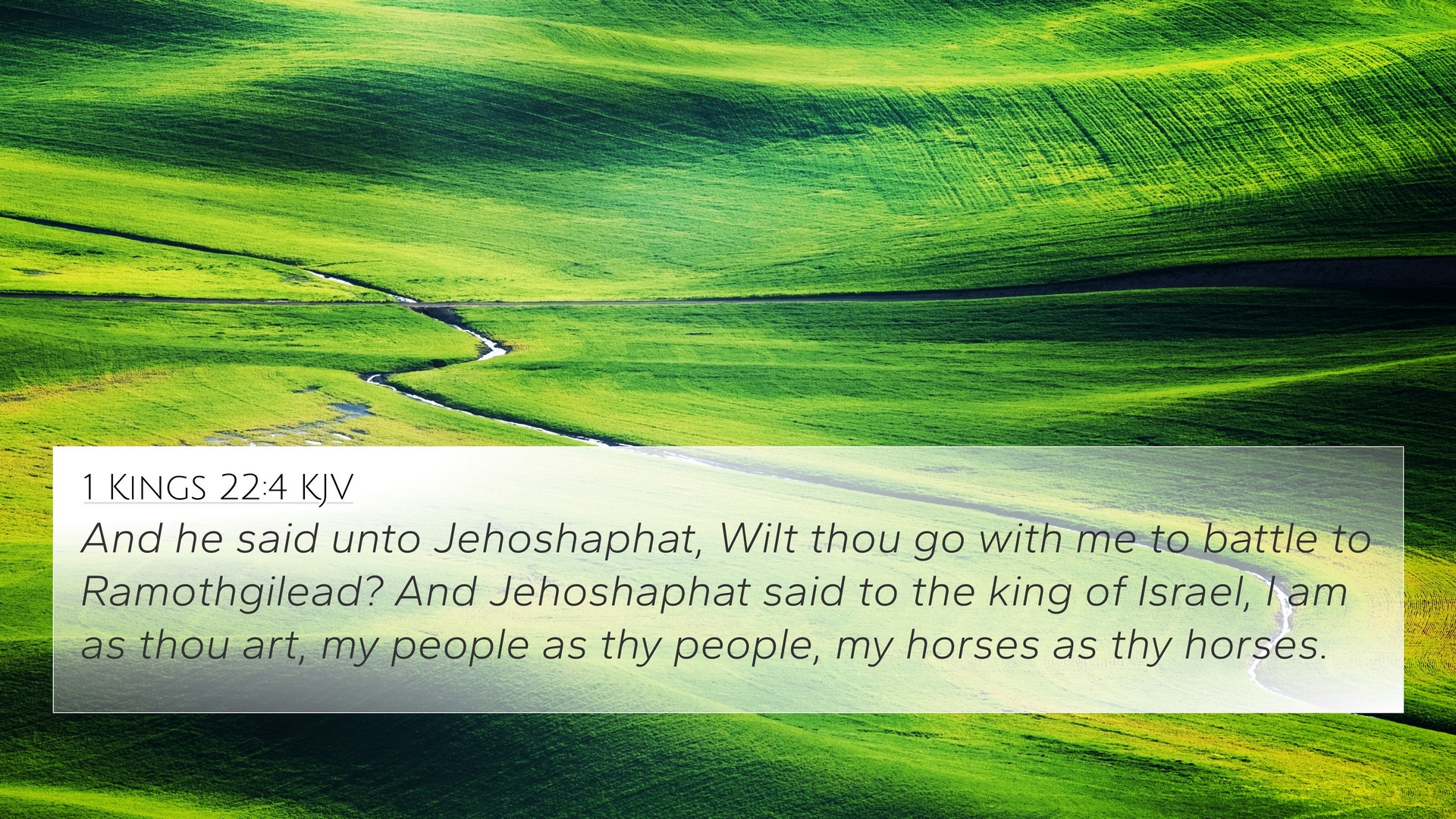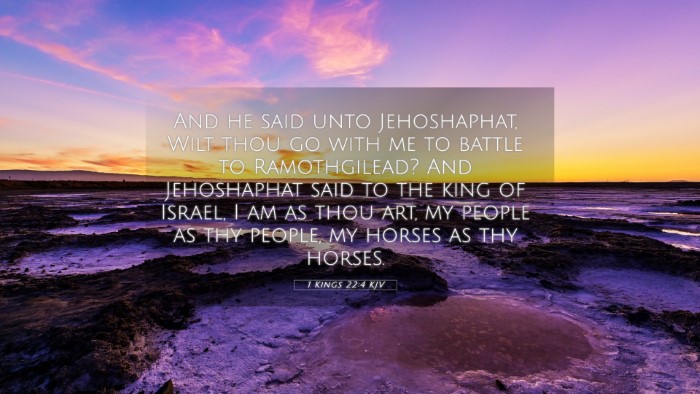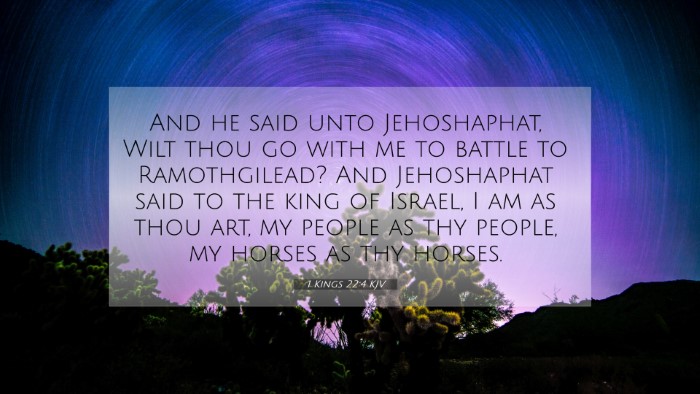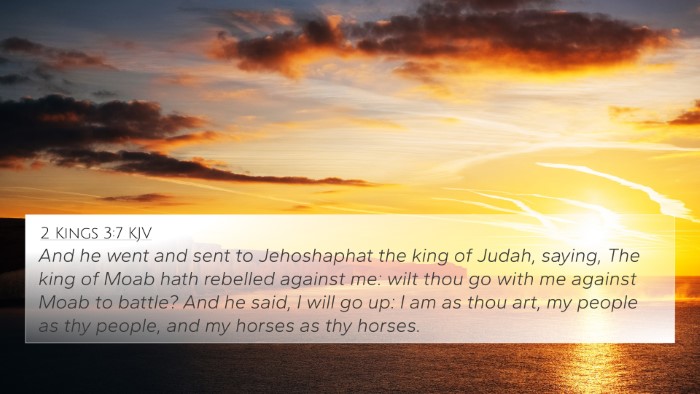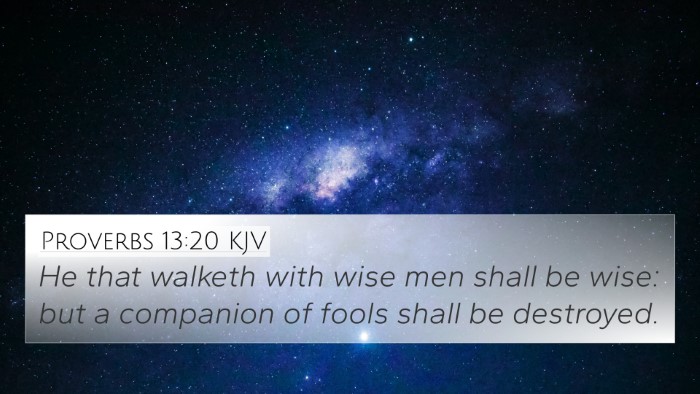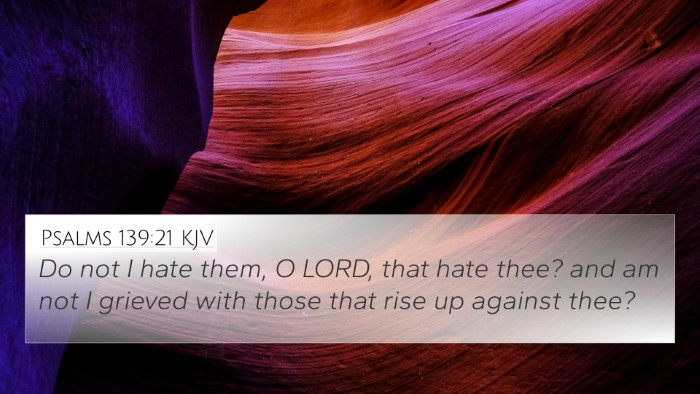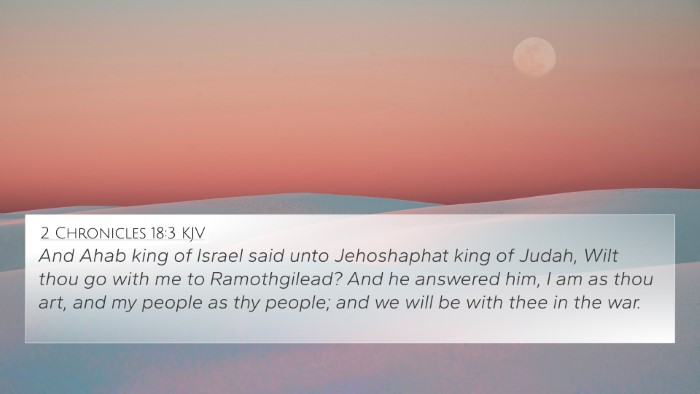1 Kings 22:4 - Summary and Interpretation
1 Kings 22:4 states,
"So he said to Jehoshaphat, ‘Will you go with me to fight against Ramoth Gilead?’
And Jehoshaphat said to the king of Israel, ‘I am as you are, my people as your people,
my horses as your horses.’"
This interaction highlights the alliance between King Ahab of Israel and King Jehoshaphat of Judah,
focusing on their shared interests and mutual support in warfare.
Meaning and Insights
This verse represents more than just a military alliance; it embodies the theme of unity and shared destiny
among the kings of Israel and Judah.
Shared Purpose:
- The request by Ahab to Jehoshaphat shows a desire for collaboration, highlighting the importance of alliances
in times of need.
Spiritual Implications:
-
1. Diplomatic Relations: Jehoshaphat’s acceptance indicates a continued relationship between
the northern and southern kingdoms despite previous tensions.
-
2. Solidarity in Trials: The assurance of mutual support reflects the biblical principle of standing
with one another through challenges, a theme echoed throughout Scripture.
Cross-References:
- 1 Kings 16:21 - References the division in Israel and the context of the political landscape.
- 2 Chronicles 18:1 - Details the alliance and its implications further.
- Proverbs 27:17 - Highlights the importance of iron sharpening iron in relationships.
- 2 Corinthians 6:14 - Discusses the importance of being united in purpose.
- Luke 14:31 - A parable regarding counting the cost in engagements, spiritual and physical.
- Romans 12:10 - Emphasizes brotherly love and honoring one another.
- Philippians 1:27 - Encouragement about standing firm in one spirit, gathering the believers.
Thematic Connections:
The alliance between Ahab and Jehoshaphat provides significant insights into the broader biblical themes of
cooperation, collective responsibility, and the importance of understanding spiritual alliances.
Historical Context:
- This account takes place during a pivotal point in Israel’s history, where political and military alliances
significantly impacted the nation’s fate. The underlying motivations for these alliances can be traced back
through various narratives in 1 and 2 Kings.
Lessons on Leadership:
Leaders like Ahab and Jehoshaphat serve as examples for contemporary leadership dynamics, including the necessity
of strategic alliances and the potential spiritual ramifications therein.
Comparative Analysis:
By contrasting verses like 2 Kings 3:7 and 1 Chronicles 20:1, further insights can be gleaned
about the nature of their alliance and its consequences. A careful analysis reveals how good intentions may lead to
perilous situations if not under divine guidance.
Final Reflections:
In summary, 1 Kings 22:4 brings attention to the importance of unity in strategic actions,
prompting believers to consider their personal alliances and the spiritual implications therein.
As seen in other Biblical accounts, the communal and spiritual ties portrayed share significant
theological relevance, affirming the call for unity and shared purpose in faith journeys.
Conclusion:
Studying 1 Kings 22:4 affords the believer an opportunity to reflect on the nature of their alliances,
both in spiritual and temporal matters, encouraging the use of scriptural cross-referencing for deeper understanding
and discernment in faith-based decisions.
